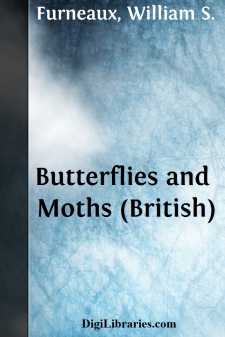Categories
- Antiques & Collectibles 13
- Architecture 36
- Art 48
- Bibles 22
- Biography & Autobiography 813
- Body, Mind & Spirit 142
- Business & Economics 28
- Children's Books 14
- Children's Fiction 11
- Computers 4
- Cooking 94
- Crafts & Hobbies 4
- Drama 346
- Education 46
- Family & Relationships 57
- Fiction 11829
- Games 19
- Gardening 17
- Health & Fitness 34
- History 1377
- House & Home 1
- Humor 147
- Juvenile Fiction 1873
- Juvenile Nonfiction 202
- Language Arts & Disciplines 88
- Law 16
- Literary Collections 686
- Literary Criticism 179
- Mathematics 13
- Medical 41
- Music 40
- Nature 179
- Non-Classifiable 1768
- Performing Arts 7
- Periodicals 1453
- Philosophy 64
- Photography 2
- Poetry 896
- Political Science 203
- Psychology 42
- Reference 154
- Religion 513
- Science 126
- Self-Help 84
- Social Science 81
- Sports & Recreation 34
- Study Aids 3
- Technology & Engineering 59
- Transportation 23
- Travel 463
- True Crime 29
Sort by:
CHAPTER I GENERAL CHARACTERS The word Lepidoptera, which you see at the head of this page, is the name of the order of insects to which this volume is to be devoted. It is formed from two Greek words, one (lepis) signifying a scale, and the other (pteron) denoting a wing; and was applied by the great naturalist Linnæus to the scaly-winged insects popularly known as Butterflies and Moths.Fig....
more...
by:
Edna Ferber
THE FROG AND THE PUDDLE Any one who has ever written for the magazines (nobody could devise a more sweeping opening; it includes the iceman who does a humorous article on the subject of his troubles, and the neglected wife next door, who journalizes) knows that a story the scene of which is not New York is merely junk. Take Fifth Avenue as a framework, pad it out to five thousand words, and there you...
more...
The Little New Year One cold morning Maurice awoke from his dreams and sat up in bed and listened. He thought he heard a knock at his window; but though the moon was shining brightly, Jack Frost had been so busily at work that Maurice could not see through the thickly painted panes. So he crept sleepily out of bed, and opened the window, and whispered: "Who is there?" "I am," replied a...
more...
by:
Randall Garrett
The great merchantship Naipor settled her tens of thousands of tons of mass into her landing cradle on Viornis as gently as an egg being settled into an egg crate, and almost as silently. Then, as the antigravs were cut off, there was a vast, metallic sighing as the gigantic structure of the cradle itself took over the load of holding the ship in her hydraulic bath. At that point, the ship was...
more...
George Chapman was probably born in the year after Elizabeth's accession. Anthony Wood gives 1557 as the date, but the inscription on his portrait, prefixed to the edition of The Whole Works of Homer in 1616, points to 1559. He was a native of Hitchin in Hertfordshire, as we learn from an allusion in his poem Euthymiæ Raptus or The Teares of Peace, and from W. Browne's reference to him in...
more...
CHAPTER I COMMON SENSE FARMING The three things essential to all wealth production are land, labor, and capital. "The dry land" was created before there appeared the man, the laborer, to work it. With his bare hands the worker could have done nothing with the land either as a grazer, a farmer or a miner. From the very first he needed capital, that is, the tools to work the land. The first tool...
more...
by:
Anonymous
There is a firm in Chicago, with a most interesting bit of inside history. It is not a large firm. Ten years ago it consisted of one man. Today there are some three hundred employees, but it is still a one-man business. It has never employed a salesman on the road; the head of the firm has never been out to call on any of his customers. But here is a singular thing: you may drop in to see a business...
more...
by:
Inazo Nitobe
BUSHIDO AS AN ETHICAL SYSTEM. Chivalry is a flower no less indigenous to the soil of Japan than its emblem, the cherry blossom; nor is it a dried-up specimen of an antique virtue preserved in the herbarium of our history. It is still a living object of power and beauty among us; and if it assumes no tangible shape or form, it not the less scents the moral atmosphere, and makes us aware that we are...
more...
TheArt of Penmanship How to Become a Handsome Writer. The subject of the importance of good writing is as broad as its use. Reaching out in every direction, and pervading every corner of civilized society, from the humblest up to the highest employments, it is a servant of man, second only in importance to that of speech itself. In the world of business its value is seen, from the simplest record or...
more...
Chapter One. “There’ll be such a game directly. Just listen to old Dicksee.” I was very low-spirited, but, as the bright, good-looking lad at my side nudged me with his elbow, I turned from casting my eyes round the great bare oak-panelled room, with its long desks, to the kind of pulpit at the lower end, facing a bigger and more important-looking erection at the upper end, standing upon a broad...
more...











